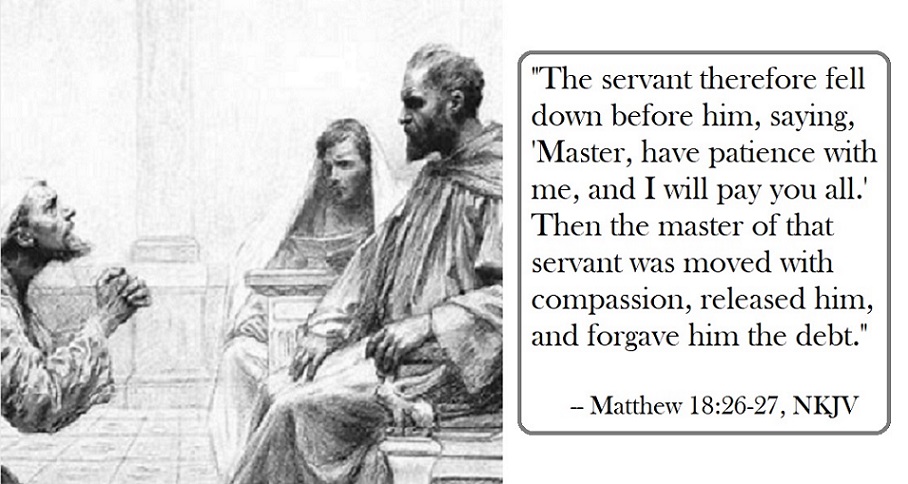“Go therefore and make disciples of all the nations…teaching them to observe all that I commanded you; and lo, I am with you always, even to the end of the age” (Matthew 28:19-20, NASB).
——————–
Contents:
1) Christ, Our Refuge (Curtis Pope)
2) To Capture Hearts… (Robert F. Turner)
3) Bible “Math” (Part 2: “Multiplication”) (video sermon, Tom Edwards)
4) News & Notes
——————–

-1-
Christ, Our Refuge
Curtis Pope
Introduction
Psalm 2 ends with a blessing pronounced upon the one who takes refuge in the Son:
“Do homage to the Son, that He not become angry and you perish in the way, for His wrath may soon be kindled. How blessed are all who take refuge in Him!” (Ps. 2:12, NASB).
For many in David’s day, the concept of refuge would have been tied up with the idea of the “cities of refuge” whose function was articulated in Numbers 35:6-34 and Deuteronomy 4:41-43.
These cities, Kedesh, Shechem, and Hebron, west of the Jordan, and Bezer, Ramoth-Gilead, and Golan, on the river’s eastern side (Josh. 20:7-9), were strategically located throughout the country, allowing readily available sanctuary to those who had taken a life unintentionally. This was necessary because of the obligation incumbent upon the next of kin to provide an “avenger of blood” (Heb. goel hadam) to exact vengeance upon any who killed a family member. In the absence of a national police force, this served as a deterrent to murder by making the perpetrator fear losing his own life. Unlike modern justice systems, which claim that “justice is blind,” ancient Israelites had no such expectations. Hebrew justice was concerned only with the family’s interest in avenging shed blood. Therefore, no matter where the killer fled or how long it took to find him, blood vengeance would be exacted.
To mitigate the circumstances if the killing was accidental, the one who took a life could flee for safety to one of the cities listed above. If he could get to a city of refuge before being intercepted and killed by the avenger of blood, he was then entitled to receive a hearing from the congregated citizens of that city. If judged by the Law of Moses and the evidence to be guilty of murder, he would be excluded from the city and subject to the wrath of the avenger of blood. However, if they determined that his offense was manslaughter, he was justified in his case and was allowed to dwell securely in the city of refuge until the death of the high priest, at which time he would be allowed to return to his home city unmolested, forever free from fear of the avenger of blood. Nonetheless, if the killer was caught outside the gates of the city before the high priest’s passing, he could be killed by the avenger of blood, regardless of the congregation’s verdict. Therefore, “refuge” in David’s day would have implied salvation, justification, and security in light of the city of refuge model.
Psalm 2 has long been considered a Messianic Psalm. Even Jewish sources, until the Middle Ages, thought it such, and even then, only changed their interpretation in light of Christian application of the passage to Jesus. Acts 4:25-26 clearly applies this psalm to Christ. Therefore, the refuge that blesses those who rest in its hope, as found in Psalm 2:12, is obviously found in Jesus, the Son of God.
The word “refuge” is a common feature in the psalms, often combining the city of refuge motif with Messianic psalms to foreshadow the salvation, justification, and security found in Christ. Let us examine these ideas as applied in the New Testament to those who take refuge in the Son.
Salvation in Christ
During the ministry of Jesus, He often calls on people to take refuge in Him. While the word “refuge” is rarely used in the New Testament (Heb. 6:18), the concept is evident throughout. In the Sermon on the Mount, for example, Jesus pronounces a blessing (in words reminiscent of Psalm 2:12) on the poor in spirit, on those that mourn, on the gentle, on those who hunger and thirst after righteousness, and upon other spiritual outcasts with the promise that their spiritual longings will be satisfied in Him (Matt. 5:3-12). In Matthew 11:28-30, Jesus says:
“Come to me, all who are weary and heavy laden and I will give you rest. Take my yoke upon you and learn from me, for I am gentle and humble in heart, and you will find rest for your souls. For my yoke is easy and my burden is light.”
These passages in Matthew call upon those burdened with sin to find refuge in Him.
After the resurrection, the gospel that Jesus commissioned to be preached throughout the world taught that “he who has believed and has been baptized shall be saved” (Mark 16:16), holding out the promise of salvation to all spiritual refugees.
On the day of Pentecost, just after Christ’s ascension, those who asked “what shall we do?” when confronted with their complicity in the murder of Jesus, were told to “repent and each one of you be baptized in the name of Jesus Christ for the forgiveness of your sins” and urged to “be saved from this perverse generation” (Acts 2:27-40).
Salvation from the wrath of God and forgiveness of sins is the constant theme of the gospel as seen in the book of Acts with Cornelius being told of Peter’s coming to Caesarea to “speak words to you by which you will be saved, you and all your household” (Acts 11:14). The question of the Philippian jailor, “Sirs, what must I do to be saved?” and Paul’s answer, “Believe in the Lord Jesus, and you will be saved, you and your household” (Acts 16:30-31) also shows the desperation of the spiritual refugee and the joy when, in penitent baptism he, “believes in God, with his whole household” (Acts 16:34).
As in the few passages above, the salvation made available to the killer in the Old Testament by the city of refuge foreshadows the safety offered by our refuge in Jesus. However, instead of giving us only an imperfect refuge to seek vindication, Christ offers us sanctuary from God’s wrath and complete justification.
Justification in Christ
As the offender sought safety in the city of refuge, it also allowed him to have his case adjudicated. His hope rested in the congregation, finding him innocent of murder but guilty of manslaughter. The one who seeks refuge in Jesus is under no such illusion of innocence. He knows that he is guilty with no hope of justification except by forgiveness (Rom. 3:10, 23). Yet, as 1 John 2:1 affirms, “we have an Advocate with the Father, Jesus Christ the righteous.” However, not only does Jesus serve as our advocate before the Father, He also stands as “the propitiation for our sins” (1 John 2:2), meaning that the price for our wrongdoing was paid by His death on the cross, thus satisfying God’s wrath. “Therefore, having been justified by faith, we have peace with God through our Lord Jesus Christ” (Rom. 5:1).
Security in Christ
When the one guilty of manslaughter was cleared of all murder charges, he could reside in secure comfort in the city of refuge. Those who flee to Christ for salvation and have been justified by His blood enjoy security and blessed assurance in Him. As Paul says in Romans 8:1, “Therefore, there is now no condemnation for those who are in Christ Jesus.” Just as those refugees had to remain within the city walls, we who seek refuge in Christ only find security in Him. As we are baptized “into Christ Jesus” (Rom. 6:3-4; Gal. 3:27) to be justified by Him, we must “abide in Him, so that when he appears, we may have confidence and not shrink away from Him in shame at His coming” (1 John 2:28).
There is great assurance that we can have in Christ. As 1 John 5:13 says, what was written was so that we “may know that you have eternal life.” The Hebrew writer says, “we who have taken refuge have strong encouragement to take hold of the hope set before us” (Heb. 6:18).
Conclusion
We can know much more about the salvation, justification, and security in the Son than did David, the author of Psalm 2, because of the simple fact that we live on this side of the cross. Even the ideas taught by the refuge offered the manslayer, by the cities of refuge, were just a faint foreshadowing of what we can know in Jesus. However, even David could understand that the only ones to be blessed by taking refuge in the Son were those doing “homage” to Him (Ps. 2:12). May we always find refuge in Christ as we honor and adore Him.
— Via Faithful Sayings, Volume 23, Issue 4 (January 24, 2021)
——————–

-2-
To Capture Hearts…
Robert F. Turner
Having spent many years trying to bring men to Christ, and pondering repeated failures, I have drawn a few conclusions from experience. We may have trusted the story of the cross too little, and our teaching ability too much. We have relied heavily upon the assumption that if we could teach men what to do, they would do it. There is something to do all right, but there will be little doing (and none that is valid) until the subject is made aware of a need, believes in a remedy, and desires the result of doing. Information may be adequate, but motivation may be lacking.
Motive is “that within the individual, rather than without, which incites him to action.” Peter’s sermon on Pentecost made the hearers aware of circumstances which produced self-judgment — “we have killed the long-awaited Messiah. What shall we do?” Under these conditions the answer can be brief and to the point. There was no need for charts, diagrams, and argumentative sermons on baptism.
This is no indictment of defense and proclamation of doctrinal details. Where such differences exist, and are the determent to full obedience, they must be thrashed out. But in many cases if we would expend greater efforts to convince men of their true status before a righteously indignant God, we would not have to press so fruitlessly the details of His will. A man who realizes he is drowning does not argue about the color of the life buoy thrown to him.
We strive for men’s hearts: casting down man’s evil reasonings, his pride, and bringing into captivity his thoughts (2 Cor. 10:4-5) to the obedience of Christ. If we are more interested in winning an argument than in saving a soul, we will certainly fail in the latter, and probably in the former. We are trying to win a man, not whip him.
To change the attitude of others, so that they will be open and receptive to the gospel of Christ, we may first have to revise our attitude. We must somehow become one with the Lord Jesus, who loved and sacrificed Himself for mankind; not because we were lovely, but “while we were sinners.”
— Via Roanridge Reader, Volume 36, Issue 4, Page 1, January 24, 2021
——————–
-3-
Bible “Math” (Part 2: “Multiplication)
Tom Edwards
This is a video sermon I preached January 31, 2021. To hear it, just click on the following:
https://thomastedwards.com/wordpress/Bible_Math_2.mp4
——————–
-4-
News & Notes
Folks to be praying for:
We extend our condolences to all the family and friends of Don Thomas who passed away yesterday, due to covid-19.
Our sympathies also go out to the family and friends of Vilos Jerry Owens who passed away last night of covid-19.
There has still not been any reduction in the brain-hematoma from Malachi Dowling’s serious ATV accident. So they are keeping him sedated. Procedures were also performed to help with his healing.
The Baptist Village Nursing Home can use our prayers for the residents and the staff.
Michelle Rittenhouse Sears has been experiencing a rapid heart beat and shortness of breath. Both she and her husband Donald also have pneumonia. Though she still has covid-19, he has now tested negative for it.
Billy Cochran is now back in the hospital with covid-19 and not doing so well.
Emma Thomas (Don’s sister-in-law) returned home Saturday to continue recuperating, after being 3 days in the hospital, due to covid-19. Her husband Earl also had it, but is now testing negative.
Eddy Wilson also tested negative for the covid-19 that he previously had, but is also still weak.
Deborah Medlock continues to heal from covid-19. About 62% of her taste buds are now working and her appetite has returned. Though Deborah has long had back trouble, it has been worse lately. Her husband Bennie is doing even better. They will both be tested this week.
Heather Kellum was recently diagnosed with covid-19, but is currently doing okay. Her daughter Cami, who also has it, has been running a low-grade fever.
Also with covid-19: Joe Hersey, Tiffany Cothren, Tiffany’s children (Rex and Cora), and Darlene Tanner.
And also for continual prayer: Rick Cuthbertson, Neil Teague, Vivian Foster, Larry & Janice Hood, Jim Lively, Judy Daugherty, Rex Hadley, Jamie Cates, A.J. & Pat Joyner, Ronnie & Melotine Davis, Shirley Davis, Chris Williams, Tim Kirkland, and Cameron Haney.
——————–
The Steps That Lead to Eternal Salvation
1) Hear the gospel — for that is how faith comes (Rom. 10:17; John 20:30-31).
2) Believe in the deity of Jesus Christ (John 8:24; John 3:18).
3) Repent of sins. For every accountable person has sinned (Romans 3:23; Romans 3:10), which causes one to be spiritually dead (Ephesians 2:1) and separated from God (Isaiah 59:1-2; Romans 6:23). Therefore, repentance of sin is necessary (Luke 13:5; Acts 17:30). For whether the sin seems great or small, there will still be the same penalty for either (Matt. 12:36-37; 2 Cor. 5:10) — and even for a lie (Rev. 21:8).
4) Confess faith in Christ (Rom. 10:9-10; Acts 8:36-38).
5) Be baptized in water for the remission of sins (Mark 16:16; Acts 2:38; 22:16; 1 Pet. 3:21). This is the final step that puts one into Christ (Gal. 3:26-27). For from that baptism, one is then raised as a new creature (2 Cor. 5:17), having all sins forgiven and beginning a new life as a Christian (Rom. 6:3-4). For the one being baptized does so “through faith in the working of God” (Col. 2:12). In other words, believing that God will keep His word and forgive after one submits to these necessary steps. And now as a Christian, we then need to…
6) Continue in the faith by living for the Lord; for, if not, salvation can be lost (Matt. 24:13; Heb. 10:36-39; Rev. 2:10; 2 Pet. 2:20-22).
——————–
Tebeau Street
CHURCH OF CHRIST
1402 Tebeau Street, Waycross, GA 31501
We are currently meeting for only our Sunday 10 a.m. worship service each week, due to the coronavirus situation.
evangelist/editor: Tom Edwards (912) 281-9917
Tom@ThomasTEdwards.com
https://thomastedwards.com/go/all.htm/ (older version of the Gospel Observer website, but with bulletins going back to March 4, 1990)







